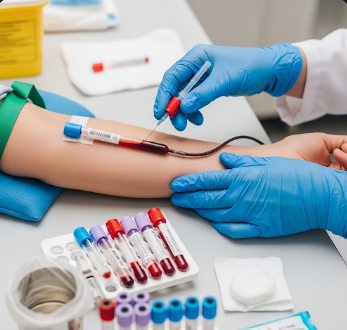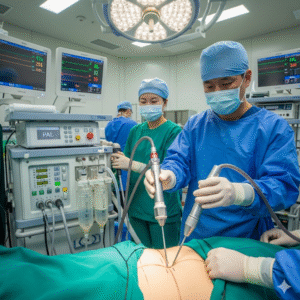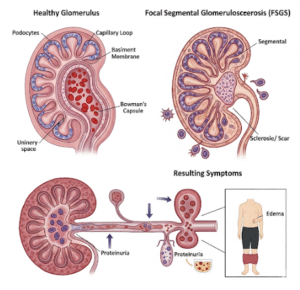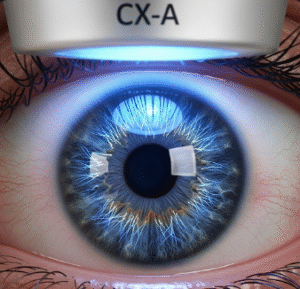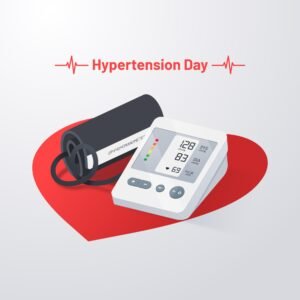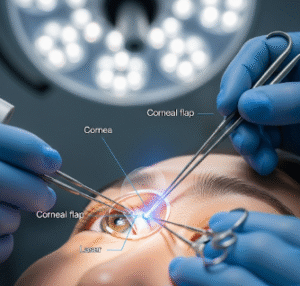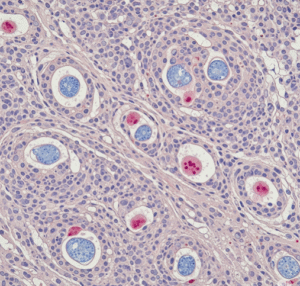Overview
Blood tests are medical laboratory analyses performed on a sample of a person’s blood to assess overall health, diagnose medical conditions, monitor diseases, and evaluate the effectiveness of treatments. Blood tests provide critical information about the components of blood, such as red blood cells (RBCs), white blood cells (WBCs), platelets, hemoglobin, electrolytes, enzymes, hormones, and markers of disease.
Blood tests are essential for:
- ➤ Detecting anemia, infections, clotting disorders, and immune conditions
- ➤ Monitoring chronic illnesses like diabetes, liver or kidney disease
- ➤ Evaluating organ function and hormone levels
- ➤ Screening for cardiovascular risk, cancers, or genetic disorders
In South Korea, blood tests are widely accessible in hospitals, clinics, and specialized laboratories, often using advanced automated analyzers that ensure accurate and rapid results.
Why It’s Done
Blood tests are performed for diagnosis, screening, monitoring, and treatment planning.
Common purposes include:
- ➤ Routine health check-ups – to assess overall health and detect hidden conditions.
- ➤ Diagnosis of diseases – infections, anemia, diabetes, liver or kidney disorders, and cancers.
- ➤ Monitoring chronic conditions – blood glucose, cholesterol, thyroid, kidney, or liver function.
- ➤ Assessing organ function before surgery or treatment.
- ➤ Evaluating treatment efficacy – e.g., response to chemotherapy or medication.
- ➤ Detecting nutritional deficiencies – vitamin, mineral, or protein deficiencies.
Benefits for patients:
- ✔️ Provides early detection of medical conditions.
- ✔️ Guides treatment decisions and dosage adjustments.
- ✔️ Reduces risk of complications by monitoring disease progression.
Alternatives
While blood tests are the primary diagnostic tool, some alternatives or complementary tests exist:
- ➤ Urine tests: Can detect kidney disease, diabetes, infections, and electrolyte imbalances.
- ➤ Imaging tests: MRI, CT, or ultrasound may detect organ abnormalities but cannot measure blood parameters.
- ➤ Genetic tests: DNA or RNA testing for inherited disorders.
- ➤ Physical examination and clinical evaluation: Provides clues, but cannot replace lab-based blood analysis.
Key point: Blood tests are direct, fast, and highly informative, often combined with other tests for a comprehensive assessment.
Preparation
Preparation depends on the type of blood test. Some tests require fasting or special instructions.
General steps include:
- ✅ Medical history and consent: Inform the healthcare provider about medications, allergies, and existing conditions.
- ✅ Fasting: Certain tests (e.g., blood glucose, cholesterol, triglycerides) require 8–12 hours of fasting.
- ✅ Hydration: Drink water to make vein access easier.
- ✅ Avoid certain substances: Alcohol, caffeine, or supplements may affect test results.
- ✅ Rest: Avoid strenuous exercise before certain tests to prevent temporary changes in blood markers.
- ✅ Sample collection preparation: Blood is typically drawn from a vein, but finger prick or arterial samples may be used for specific tests.
Important: Following preparation instructions ensures accurate and reliable results.
How It’s Done
Blood tests are generally quick and minimally invasive.
Step-by-step process:
- Patient identification: Verify name, date of birth, and test requirements.
- Site preparation: Skin is cleaned with antiseptic, usually at the inner elbow or back of the hand.
- Sample collection:
- Venipuncture: Needle inserted into a vein to draw blood into collection tubes.
- Finger prick: Small drop of blood collected for glucose, hemoglobin, or point-of-care testing.
- Arterial blood sampling: Rarely, for blood gases.
- Labeling and transport: Tubes labeled correctly and sent to the laboratory.
- Analysis: Automated analyzers or manual techniques measure blood components.
Duration: 5–15 minutes for collection; laboratory analysis may take minutes to days depending on test complexity.
Pain level: Minimal, limited to mild needle discomfort.
Common Types of Blood Tests
- Complete Blood Count (CBC): Measures RBCs, WBCs, hemoglobin, hematocrit, and platelets.
- Detects anemia, infection, and blood disorders.
- Blood Chemistry / Metabolic Panel: Measures electrolytes, glucose, kidney and liver function markers.
- Includes creatinine, urea, ALT, AST, bilirubin, and electrolytes.
- Lipid Profile: Measures cholesterol, triglycerides, HDL, and LDL.
- Assesses cardiovascular risk.
- Blood Glucose Tests: Includes fasting blood sugar and HbA1c.
- Monitors diabetes and metabolic disorders.
- Hormone Tests: Thyroid (TSH, T3, T4), reproductive hormones, cortisol, insulin.
- Evaluates endocrine function and fertility issues.
- Infection Markers: CRP, ESR, blood cultures, viral load tests.
- Detects infections and inflammation.
- Vitamin and Mineral Levels: Vitamin B12, vitamin D, iron, ferritin, calcium, magnesium.
- Diagnoses nutritional deficiencies.
- Coagulation Tests: PT, aPTT, INR.
- Evaluates blood clotting ability.
- Specialized Tests: Tumor markers, genetic tests, allergy panels, autoimmune markers.
In Korea, these tests are performed using highly automated systems, often integrated with electronic health records for faster results and follow-up.
Recovery & Follow-up
Blood tests are low-risk and do not require recovery.
Post-test care:
- Apply pressure and bandage at the puncture site to prevent bleeding.
- Mild bruising may appear, usually resolving in a few days.
- Resume normal activities immediately, unless a specific test requires rest.
Follow-up:
- Discuss abnormal results with a healthcare provider.
- Repeat tests may be needed to confirm findings or monitor treatment response.
- Abnormal results may prompt further investigations like imaging, biopsy, or specialist referral.
Important: Maintaining a record of your blood test results aids in long-term health monitoring.
Possible Complications
Blood tests are generally safe, with rare complications:
- ⚠️ Minor bruising or bleeding at the puncture site.
- ⚠️ Infection at puncture site – extremely rare with proper hygiene.
- ⚠️ Fainting or dizziness – may occur in needle-phobic individuals.
- ⚠️ Hematoma formation – minor collection of blood under skin.
- ⚠️ Incorrect labeling – minimized by strict hospital protocols.
In South Korea, modern laboratories follow strict sterile techniques and identification procedures, minimizing risks.
Treatment Options / Clinical Relevance in Korea
Blood tests in South Korea are part of routine health care, preventive medicine, and advanced diagnostics.
Key features:
- 🏥 Routine health check-ups: Most hospitals offer comprehensive annual blood panels.
- 🏥 Hospital and lab integration: Blood tests linked to digital health records for seamless monitoring.
- 🏥 Advanced automated analyzers: Provide rapid and precise results for multiple parameters.
- 🏥 Specialized testing: Cancer markers, prenatal screening, genetic analysis, and organ function panels.
- 🏥 Emergency and inpatient monitoring: Blood tests are performed frequently in critical care for real-time monitoring.
Highlights in Korea:
- ✔️ Blood tests are readily available and affordable.
- ✔️ Automated systems reduce human error and improve accuracy.
- ✔️ Integrated with national preventive health programs.
- ✔️ Provides timely diagnosis and treatment monitoring, improving patient outcomes.
Highlights
- ➤ Blood tests are essential diagnostic tools used to assess health, detect disease, and monitor treatment.
- ➤ Performed via venipuncture, finger prick, or arterial sampling, depending on the test.
- ➤ Minimal preparation and low-risk procedure with almost instant results for routine tests.
- ➤ Common tests include CBC, blood chemistry, lipid profile, glucose, hormones, vitamins, and coagulation tests.
- ➤ Abnormal results guide further investigation, diagnosis, and treatment planning.
- ➤ South Korea provides advanced, automated, and integrated blood testing services ensuring accurate and timely results.
- ➤ Regular blood testing contributes to preventive health care, early disease detection, and improved long-term outcomes.

